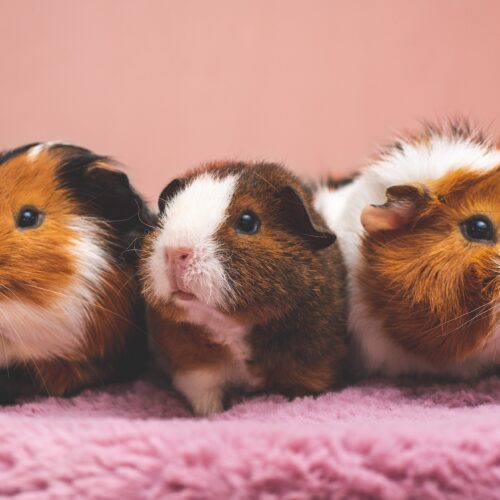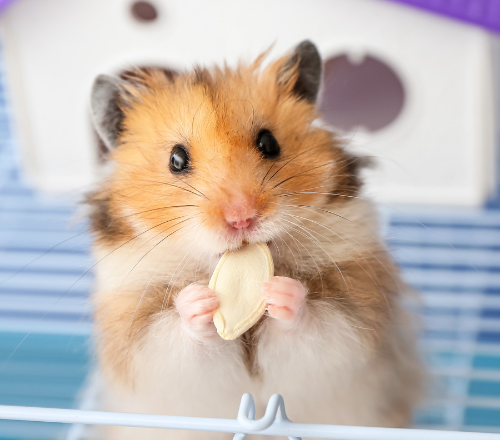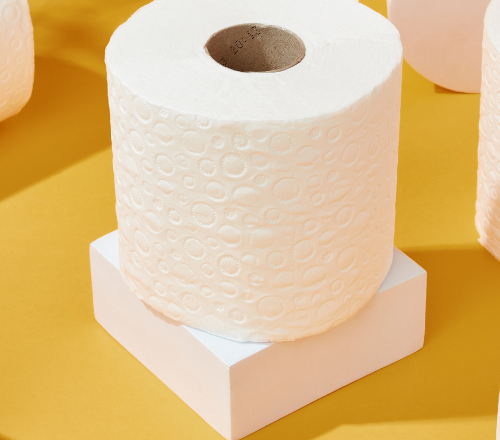Millions of people across the UK have fond memories of being told to put a wet paper towel on a whole host of cuts and scrapes in their childhood – but just how did kitchen roll become the household staple it is today?
Keep reading to find out the answers to all your paper towel questions.
Who invented paper towels?
It’s hard to think there was a time before paper towels were invented – surely they’ve been around since paper, right? Well, not exactly. Although people have been making paper since as far back as AD 105, it took humanity a long time to have the idea of making it absorbent to mop up spills.
In fact, the first man to do this – a man named Arthur Scott who owned a toilet roll company in Pennsylvania – only did so by accident! It’s said the idea came to him after a batch of toilet paper came out of the factory far too thick to be used for that purpose.
Instead of wasting the material, Scott came up with a use for it! By perforating the paper into sheets, he could sell them as paper towels – perfect for drying hands or mopping up spills. And so, the kitchen towel was invented.
When was kitchen roll invented?
Of course, the concept behind kitchen roll has existed for thousands of years. People have been mopping up spillages with rags and cloths since… well, since we first started spilling things. It used to be clumps of moss and animal pelt – which isn’t exactly the most hygienic for your kitchen counter. Then it was cloths and rags – and of course some people still use these today.
But it wasn’t until the early twentieth century that paper towels came onto the market – Arthur Scott began selling his paper towels to be used in the kitchen in 1931. Back then, they were closer to the size of hand towels – and designed to do much the same job.
Do kitchen towels contain plastic?
Paper towels – as the name suggests – are made entirely of paper, loosely woven to create an absorbent material. The towels themselves don’t usually contain plastic, but the packaging often does. Sometimes, kitchen rolls might even be double-wrapped in multipacks – plastic wrapped around each individual roll as well as around the whole pack.
At Oceans, we wrap our kitchen rolls in fully recyclable paper packaging so you can be sure there’s no plastic in your order. Both roll and wrap are sustainably made in the UK.
Is kitchen roll hygienic?
Kitchens are the hub of food and drink in our homes, so you may be wondering if kitchen towels are really the most hygienic option – and that’s the beauty of disposable paper towels. Whether you’re using them to clean up a spillage or just to wipe down your surfaces, you can rest assured that they’re not carrying germs from the last thing you cleaned. In fact, in an independent laboratory test, Oceans plastic-free kitchen roll has been proven to remove 99.9% of bacteria*.
Because of this, kitchen rolls are much more hygienic than some other options out there – imagine how much bacteria a reusable cloth might be carrying after a few days’ use! The added bonus is that once you use a paper towel, it goes in the bin, so there’s no lingering smell or bacteria spreading around your kitchen.
They’re also more hygienic than cloth towels or air dryers in public or shared bathrooms. This is because each person uses a separate paper towel, so there’s no transfer of bacteria. Paper towels don’t propel germs through the air like hand dryers do.
Can you flush kitchen roll?
Although kitchen roll is made of tissue, like toilet roll, the type of paper and the process used to make it means that it’s thicker and much more absorbent. This means it can’t go down the toilet – if it does, it might swell up and block your pipes. Always put your kitchen towels in the bin after use to make sure they don’t end up anywhere they shouldn’t. Even better, recycle clean kitchen towels in your domestic recycling.
And so, we’ve come to the end of our whistle stop tour of everything you could possibly want to know about kitchen rolls. Next time you’re at a party and someone spills their drink, you’ll have just the thing to break the ice – metaphorically, of course!
*In an independent laboratory test Oceans kitchen roll was examined in a study and through its normal use demonstrated the ability to remove >99.99% of S. aureus, E. coli and P. aeruginosa bacteria from a stainless-steel surface.




